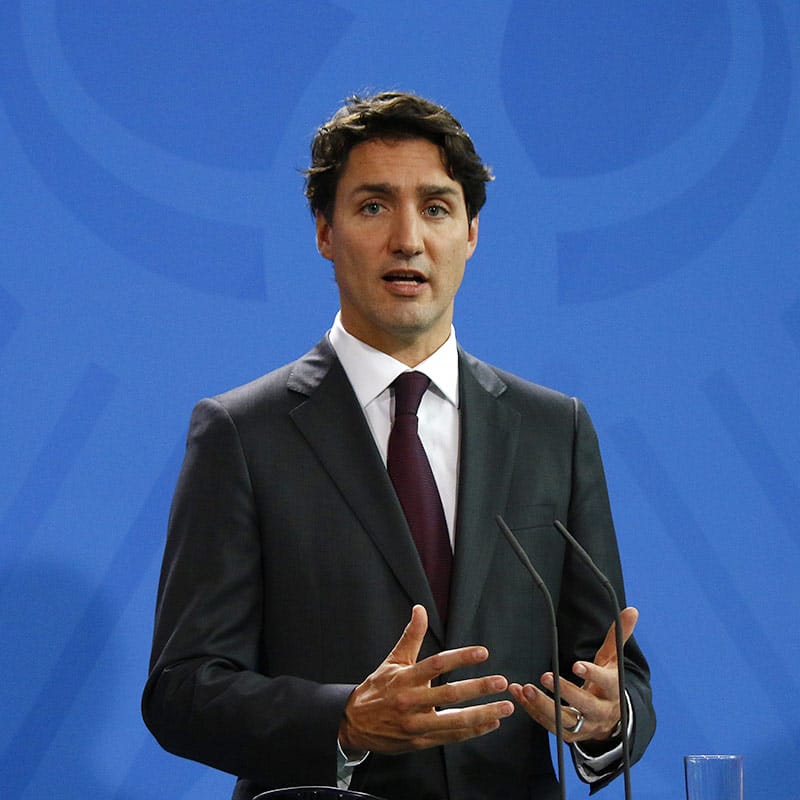What Did Mr. Justin Trudeau Get Out of 45 in the IB? A SPECULATIVE CENSUS
By Rebecca Liu ’25, Head Editor-in-Chief; Edited by Georgia Trites ’25, Staff Editor

While procrastinating my L&L Essay on a sleepy Sunday night, I fell into a pernicious rabbit hole, intent on answering one question: what IB score did Canadian Prime Minister Justin Trudeau get out of 45 after taking the IB program?
I was reading blog after blog about notable IB alumni (among whom are Lupita Nyong’o, Kesha, Ken Jennings, and technically not Kim Jong Un, who allegedly failed CAS) as a sort of quasi-productive tangent on my schoolwork before coming across the fact that Justin Trudeau took the IB program during his time in school. Immediately, I wanted to know his score. Other than some highly dubious Quora forums asserting he scored a 35 without providing a source, there appears to be no readily available online information about Mr. Trudeau’s score. The only certain fact is that he indeed graduated from the Collège Jean-de-Brébeuf with an IB diploma, suggesting that he at least achieved a 24, a minimum passing grade.
So, what could I do other than ask every single IB2 and most of the IB1s what score they think the Prime Minister received out of 45?
After asking all the IB2s, 60% of the IB1s, and a couple of IB teachers, I can say that Ridley College believes that Justin Trudeau got … (drumroll, please) … a 34! Precisely, considering the opinions of all participants in my highly professional study, I ended up with an average of 33.58, a mode of 32, a range of 43, and a median of 35.
Table of All Results
While you are free to come to your own conclusions based on this data and can even ask me to see the raw data, I thought I would share some of my favourite insights:
- All the averages are extremely close, with each situated somewhere between 33 and 34.
- The teachers had the lowest average and range, making them the harshest but most consistent group of individuals I surveyed.
- Shockingly (to me), the IB2s, who I assumed would be disillusioned and cynical when responding, had the highest average. But, they also had the highest range, making them the group with the most varied opinions out of those surveyed.
- The opinions of the IB1s that responded were pretty middle-of-the-road! Once I processed their data, all their responses landed in the middle of the total data set.
- Shoutout to the highest and lowest responses I received: Mark Liu ’26 and Nye Thongpapanl ’25 with a guess of 43 and Matthew Liu ’25 with a hard guess of 0.
But with all my data collected, I had to ask myself what the point of all this was. Indeed, going around and asking about Justin Trudeau was undoubtedly fun. People took on multiple approaches to the same question – some gave me nuanced takes, some speculated about his IQ, others pondered whether or not he would have tried in high school, and others still just threw out random numbers. But should private information about politicians be something that matters, and do we have a right to ask for it?

The orthodox view surrounding politicians’s right to personal privacy has always been supported by both the justice system and the public, the view being that those in politics have a weak legal and moral basis for a special right to privacy. Especially in a parliamentary democracy like Canada, the traditional argument goes that scrutiny of private lives is essential for voters to be well-informed and confident in a politician’s character, translating into their ability to make policy decisions.
However, in John William Devine’s article published in the Journal of Applied Philosophy, he considers the two underlying propositions that, when considered together, seem to contradict the orthodox view. Firstly, the civic function of voting and the political accountability it facilitates both necessitate the public having unencumbered access to any information that helps inform their voting decisions. Secondly, the office that politicians are voted into must be structured to encourage capable and responsible decisions. Devine asserts that through a purely democratic lens, excessive scrutiny and focus on a politician’s private life impede their ability to make sound judgments and decisions. If the minutiae of their personal lives were made available to every member of their electorate, politicians could become excessively focused on maintaining their image, unable to learn actual lessons from their decisions or focus on more substantive issues.
Keeping this in mind, I would ask whether or not knowing Justin Trudeau’s IB score is relevant or necessary information that would sway your vote in the upcoming 2025 federal election (if you are even eligible to vote… I’m not…). Does knowing the specifics of a teenage Trudeau’s academic performance change your perception of him? And if it does, should it?
Anyway, that is all to say that I don’t actually have an answer to what he got out of 45 (sorry!). With the end of this investigation, what I recommend is that you make your own judgments of the man, determining what information fulfills your civic function of gathering the necessary information to develop your stance on Trudeau. If that includes his IB score, so be it.
Big thanks to all the IB students and teachers who took the time to respond to my question!
The Tiger Times Executive Team’s Guesses
(Head Editor-in-Chief) Rebecca Liu ’25: 35/45
(Head Editor-in-Chief) Rawnie Sun ’25: 34/45
(Editor-in-Chief) Kat Willson ’26: 30/45
(Editor-in-Chief) Brie Goodly ’26: 34/35



